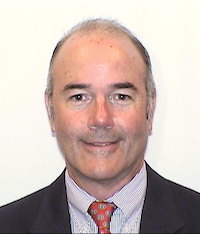
A mother and child waiting for the PCV vaccine at the Derer Ebija Health Post, Ethiopia.
Image: UNICEF Ethiopia (Flickr)
“You’ll never get rich in this field”, Irwin “Rusty” Rosenstock, Ph.D., then-Chairman of the Department of Health Behavior-Health Education at the University of Michigan School of Public Health, told me as I was interviewing for admission into the program.
“Oh, I’ve never been about the money”, I fired back, with the clichéd zealousness of a grad student. “I’m more about the mission.”
Two years out of an undergraduate program in psychology, I had been working in a hospital surgery department. The concept of “health behavior” represented to me an innovative marriage of two of my primary interests: human behavior and health care, and it compelled me to pursue a Masters of Public Health.
I received my degree in May, 1980. Now, after a 34-year career that has seen everything from a general gutting of public health as a result of Reaganomics, to “The Clinton Health Plan,” to George W. Bush’s unprecedented funding of community health centers, to the Affordable Care Act that continues to grab headlines on a daily basis, I can affirmatively say that now-deceased Dr. Rosenstock was correct: I have not gotten rich. But gosh, do I ever know a lot about a lot of different things.
Depending on which of the many public health disciplines one chooses to embrace academically or professionally, there can be a dearth of education regarding management and administration of programs and personnel. This often results in having to learn by doing. The truth is, public health is a dynamic field, and rewards those who can adapt along with the scientific, economic, and political landscapes.
Spanning the myriad of public health disciplines — toxicology, health care administration, health care planning and policy, public health nursing, epidemiology, biostatistics, to name more than a few — there is a dichotomy of the “macro” and the “micro.” Examples of the former include interventions that impact large populations, such as chlorinating or fluoridating our drinking water, health care administration, and researching the efficacy of vaccines. Examples of the latter include interventions that impact one member of the public at a time, such as administering those vaccines, wellness programs, and teaching the chronically ill how to manage their conditions.
I have experienced a mix of both the macro and the micro in my career across the decades:
- Fresh from graduate school, I accepted a position at a large community health center, leading a multi-disciplinary team (my first management position) that developed and implemented health education programs for rural and migrant populations (the “micro”). These programs focused on counseling for pregnant women, secondary prevention for patients with high blood pressure and diabetes, and the hazards of agricultural pesticides and sun exposure.
- Five years later, the economic policies of the Reagan administration resulted in a steep reduction in funding for community-based health care. I needed to adjust my career. The exposure to the delivery of primary care that I had received within the community health centers facilitated my hiring into a position at a then-novel setting known as a Health Maintenance Organization or “HMO.” Part insurance plan and part delivery system, HMOs were created with an emphasis on prevention and primary care. I assisted in the development and management of a contracted comprehensive network of health care providers across the continuum of care. At that time, I cultivated a new skill set in the area of “provider analytics,” using health care data to manage the financial and utilization performance of the health care providers. I knew at the time that this skill set would enhance my portfolio, and had a sense that it would only become more important in the future.
- Nine years later, and for a period of 19 years, I continued my evolution further into the business aspects of health care (the “macro”). I transitioned to the provider side, and worked at several large health systems. I led departments whose responsibility was to contractually engage with health plans to establish appropriate levels of reimbursement to the health systems. The health care analytics skill set I had developed within the HMO became further valuable. I began to delve deeper into payer analytics, using data to optimize the financial outcomes of the health system’s contracts with health plans.
- During this time, I developed an intense interest in health care economics, again seeking the intersection between human behavior and health care. I moonlighted as a professor for ten years, teaching a course at a small private university. I was intrigued by the conundrum of how health care in the United States repeatedly tries – and fails – to operate under free market principles.
- After an absence of 19 years from the health plan side of the industry, I recently returned to working at a large HMO, where I intend to close out my career.
Going forward, I imagine public health professionals will be intensely dedicated to ensuring an adequate supply of potable water and conquering communicable diseases caused by ever-mutating microorganisms. Meanwhile, those who are actively engaged in the delivery and financing of health care services will be tasked with harnessing the power of the growing trend of consumerism in health care, which seeks to make health care more affordable, and to achieve a higher level of good health within the population.
The cause of the trend is an irreversible increase in the out-of-pocket financial liability that persons have for the health care services they receive. After many decades of maintaining an insurance model that has effectively insulated the consumers from the cost of their health care, employers and the federal government are rapidly shifting more of that cost to the consumer.
From a public health perspective, this is a fertile basis for a renewed interest in wellness, primary and secondary preventive health care, and improved patient compliance. In tandem with rising personal financial responsibility for health care, these concepts will no longer be regarded as remote or irrelevant or, at worst, a nuisance. We are on the verge of a health care tipping point, in which consumers will demand a greater say in their choices of health care providers, and will expect pricing and quality data to support their decision-making.
This tipping point will have significant ramifications in how and where health care services are delivered; a major focus on price and underlying cost, resulting in a de-emphasis on new bricks and mortar for health care facilities.
For the first time, at the intersection of human behavior and health care, we will witness the rise of a true market-based dynamic for health care services. Far more substantial than any financial reward, seeing that ideal finally become a reality would certainly be the biggest payoff for those who are dedicated to the public’s health.
•
 Richard O’Donnell, MPH, is currently Associate Vice President of Provider Contracting and Reimbursement for Priority Health, headquartered in Grand Rapids, Michigan. Mr. O’Donnell resides with his wife Alice in Northville, Michigan. He can be contacted at fooboon54@gmail.com.
Richard O’Donnell, MPH, is currently Associate Vice President of Provider Contracting and Reimbursement for Priority Health, headquartered in Grand Rapids, Michigan. Mr. O’Donnell resides with his wife Alice in Northville, Michigan. He can be contacted at fooboon54@gmail.com.
Other Voices in the “Mastering the MPH” Roundtable

Finding Answers Abroad
Liana Rosenkrantz Woskie
Becoming a Public Health Midwife
Renée Fiorentino
